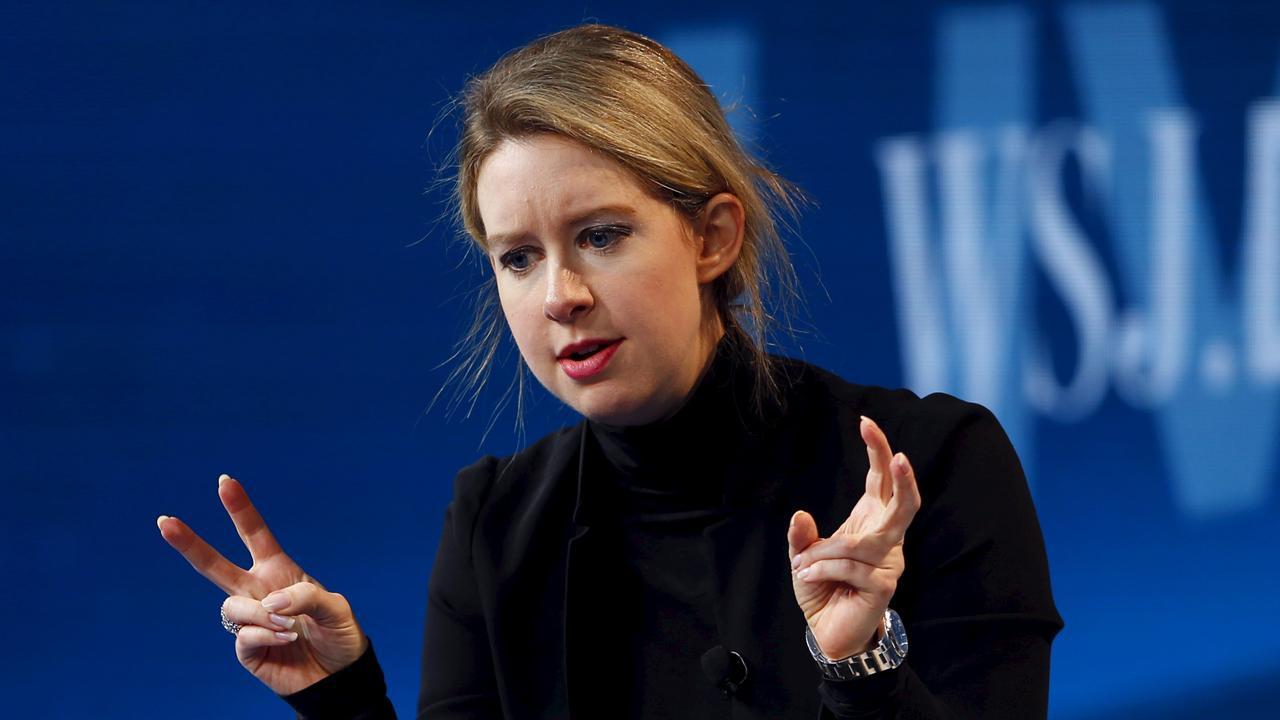Theranos CEO Holmes’ request to suppress trial evidence denied by judge
Holmes sought to have customer complaints and test results suppressed
Attorney for Theranos’ Holmes asks for trial delay over coronavirus pandemic
Melissa Francis on Theranos CEO Elizabeth Holmes' trial
Former Theranos CEO Elizabeth Holmes was dealt another blow as she tries to defend herself against allegations that she engaged in a multimillion-dollar scheme to defraud investors.
U.S. District Judge Edward Davila of Northern California on Wednesday denied Holmes’ request to have certain evidence from the trial suppressed, including customer complaints and testing results. She also sought to have a Centers for Medicare and Medicaid Services report suppressed.
ELIZABETH HOLMES: 5 THINGS TO KNOW
Holmes’ attorneys argued that the evidence in question should not be able to be used because her defense would be hurt due to missing test results from the Laboratory Information System. That LIS database is said to have contained millions of test results, without which, her defense argues, it is not possible to prove that the technology produced unreliable results.
The defense has also argued that without those results, witness testimonies would be anecdotal and would not prove that Theranos’ technology was less reliable than that of competitors.
The judge said that the information from the database alone would not provide a conclusive determination of whether the tests were accurate, and therefore is exculpatory value to Holmes was "speculative" in nature.
It is not clear why the data from the LIS is missing and both sides have blamed one another.
CLICK HERE TO READ MORE ON FOX BUSINESS
Holmes, who was once estimated to be a billionaire, had a spectacular rise to prominence in the technology community based on her vision of building a simplified blood-testing system.
She founded the startup Theranos in 2003 at the age of 19. The technology aimed to allow comprehensive blood testing and analysis with a small amount of blood obtained from a prick of a finger.
At its height, the company was valued at more than $9 billion after raising nearly $900 million from investors, according to The Wall Street Journal.
GET FOX BUSINESS ON THE GO BY CLICKING HERE
After the onset of a Wall Street journal investigation, inspections, lawsuits and deals that fell through, the company had less than $200 million at the end of 2016 – less than 25% of the amount of cash it had initially raised from investors.
She was indicted in June of 2018.
Theranos, Holmes and former president Ramesh "Sunny" Balwani agreed to a settlement with the SEC, which alleges that they committed a "massive fraud" in lying about one of the company’s key products. In addition, Holmes was stripped of control of the company and is barred from serving as an officer or director at any public company for the next decade.
She was forced to return to investors 18.9 million shares, which the SEC said were obtained through fraud, and paid a $500,000 penalty. Holmes and Balwani were charged with raising more than $700 million from investors through a fraudulent scheme that took place over the course of years.
Holmes and Balwani were indicted by a grand jury in June 2018, which they are still defending themselves against. Holmes' trial is scheduled to take place in August.




















